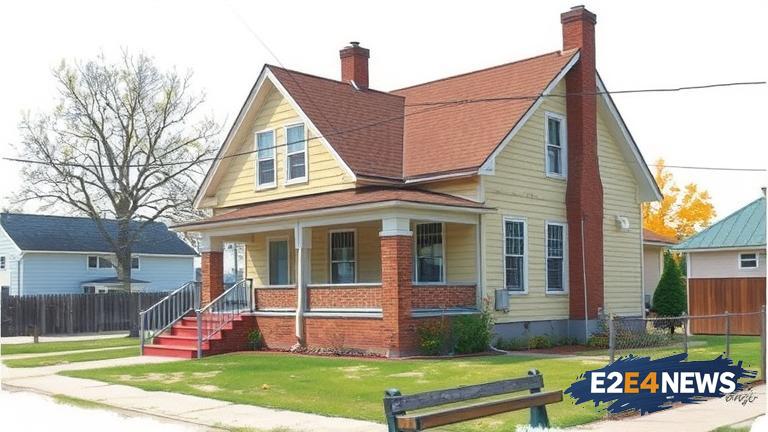The city of Wyandotte’s zoning board recently denied a proposal for a veteran home, leaving the project’s future hanging in the balance. The proposed home, which would have provided a safe and supportive living environment for local veterans, had been met with enthusiasm from the community. However, the zoning board’s decision has raised concerns among residents and veterans’ advocates, who argue that the home is desperately needed. The proposed home would have offered a range of services and amenities, including counseling, job training, and medical care, all tailored to the unique needs of veterans. Despite the denial, the project’s developers remain committed to finding a solution, and are exploring alternative locations and zoning options. The city’s mayor has also expressed support for the project, citing the importance of providing services and support to local veterans. The denial has sparked a wider debate about the city’s zoning laws and their impact on social services and community development. Some argue that the laws are too restrictive, and prevent important projects like the veteran home from moving forward. Others argue that the laws are necessary to protect the character and quality of life in the city’s neighborhoods. The issue has also highlighted the need for greater collaboration and communication between city officials, developers, and community stakeholders. As the project’s future remains uncertain, local residents and veterans’ advocates are calling on city leaders to revisit the zoning decision and explore alternative solutions. The veteran home is not just a vital service for local veterans, but also a symbol of the community’s commitment to supporting those who have served. The project’s developers are working tirelessly to find a way forward, and are urging city officials to work with them to find a solution. The city’s zoning laws are designed to balance the needs of different stakeholders, but in this case, they may be having an unintended consequence. The denial of the veteran home proposal has also raised questions about the city’s priorities and values. As the city moves forward, it will be important to consider the impact of zoning decisions on social services and community development. The veteran home is just one example of the many important projects that are being impacted by zoning laws. The city’s leaders must find a way to balance the needs of different stakeholders, while also supporting important social services and community development projects. The future of the veteran home remains uncertain, but one thing is clear: the city must find a way to support this vital project and ensure that it moves forward. The city’s residents and veterans’ advocates are watching closely, and are urging city leaders to take action. The veteran home is a critical component of the city’s social services, and its loss would be deeply felt. The city’s zoning laws must be flexible enough to accommodate important projects like the veteran home, while also protecting the character and quality of life in the city’s neighborhoods. The project’s developers are committed to finding a solution, and are working closely with city officials to explore alternative options. As the city moves forward, it will be important to prioritize the needs of local veterans and ensure that they have access to the services and support they need.
